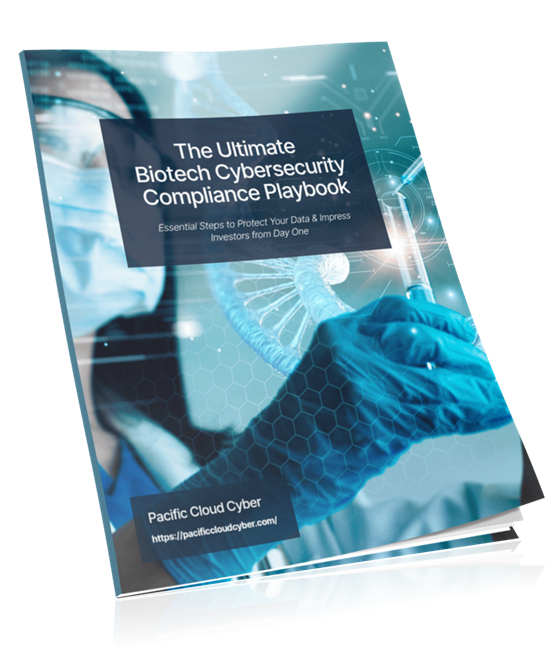

How Seattle Biotech IT Provides the Data Integrity Needed for Funding



Groundbreaking discoveries and innovative therapies often take center stage in the field of biotechnology. Yet, behind every breakthrough lies a less glamorous foundation: data integrity and Seattle biotech IT. For organizations seeking funding, regulatory approval, and long-term success, data integrity isn’t just a compliance checkbox; it’s the lifeblood of credible science and business viability. We’ll address a critical challenge in pharmaceutical startups: maintaining robust data integrity (DI).
Startups often focus heavily on breakthrough science but overlook the strict enforcement of DI principles. This oversight can jeopardize funding opportunities since investors and regulatory agencies demand confidence in data authenticity and accuracy before committing resources. Ensuring strong business continuity in Seattle bolsters trust in your data practices.
Central principles of data integrity include:
- Attributable: Clear identification of data origin.
- Legible: Data must be readable and understandable.
- Contemporaneous: Recorded at the time of the event.
- Original: Retain raw or source data.
- Accurate: Free from errors and consistent.
These foundational elements form the backbone for securing both scientific credibility and financial backing in the biotech sector.
Data Integrity in Biotech
Differentiating between Original and Raw Data
Original data refers to the initial observations or records directly collected during an experiment or study. It’s the primary source of information that has not been altered or manipulated. On the other hand, raw data includes all recorded values and measurements, whether they have been processed or not.
Explaining ALCOA+ Principles in Data Integrity
The ALCOA+ principles stand for Attributable, Legible, Contemporaneous, Original, Accurate, and the “plus” part encompasses completeness, consistency, enduring accessibility, and availability on demand. These principles keeps data reliable, traceable, and compliant with regulatory standards. Adhering to ALCOA+ guidelines helps maintain the integrity of data throughout its lifecycle in biotech research and operations.
Regulatory Compliance and Investor Confidence
Data integrity is vital for successful regulatory submissions to authorities such as the FDA, EMA, and MHRA. Regulators require complete, accurate, and verifiable data to approve new drugs or therapies. Any gaps or inconsistencies in data can lead to longer review times, requests for more information, or rejection of submissions. These setbacks result in costly delays that can hinder a startup’s progress.
Investors closely examine how startups handle their data because reliable data indicates sound science and operational discipline. Confidence comes from transparency and reproducibility—two qualities only achievable through strict adherence to data integrity principles. When investors perceive risks related to questionable data practices, funding opportunities decrease significantly.
Factors influencing regulatory and investor confidence include:
- Traceability: Every data point must be attributable and linked back to its source.
- Consistency: Data should remain unchanged unless documented with clear rationale.
- Accessibility: Ready access during audits or inspections reinforces trustworthiness.
Biotech startups prioritizing these elements protect not only their regulatory standing but also their financial lifelines.
The Role of Audits, Documentation, and Technology in Securing Biotech Data Integrity
Ensuring data integrity in biotech requires thorough internal audits and external audits. Internal audits act as proactive checkpoints within your organization to identify and address gaps before they become bigger issues. They help verify compliance with ALCOA+ principles and uncover inconsistencies early on. External audits, usually conducted by regulatory bodies or third-party experts, validate the strength of your data management systems from an unbiased viewpoint. Importantly, both types of audits maintain transparency and build trust among stakeholders.
The Importance of Detailed Documentation for Regulatory Submissions
Comprehensive documentation for regulatory submissions is essential for maintaining data integrity. Every piece of data must be traceable, complete, and well-organized to meet FDA, EMA, or MHRA requirements. Proper documentation demonstrates adherence to protocols and audit trails, making it easier to respond to regulatory inquiries or inspections without delays.
The Role of Technology in Automating and Securing Data Processes
Technology plays a role in automating and securing your data processes. Electronic Data Capture (EDC) systems streamline data collection by minimizing human error through real-time validation checks and automated audit trails. Leveraging EDC alongside Laboratory Information Management Systems (LIMS) or other validated computerized tools can significantly reduce risks associated with manual handling of sensitive biotech data.
Implementing a combination of thorough audits, meticulous documentation, and advanced technology creates a strong framework that protects your biotech data integrity.
Challenges and Best Practices in Biomedical Research Data Integrity Management
Maintaining data integrity in biomedical research can be challenging due to several factors including the large amount of complex data, potential human errors and biases, and threats to cybersecurity. To effectively overcome these challenges, it’s essential to implement best practices for managing research data:
1. Volume/Complexity of Data
- Implement standardized procedures for collecting and documenting data.
- Regularly evaluate the quality of data to quickly identify and fix any discrepancies.
2. Human Error/Bias
- Provide thorough training on principles and practices of data integrity to all staff members involved in managing data.
- Use advanced technologies such as Artificial Intelligence (AI) for automated detection and correction of errors.
3. Cybersecurity Threats
- Establish strong protocols for cybersecurity to protect research data from potential breaches.
- Conduct regular audits of data security measures to maintain compliance with industry standards and regulations.
Data Management and the Importance of Patient Safety in Clinical Trials
It’s integral to have professionals who prioritize data integrity through services like curation and validation. These experts help keep data accurate, complete, and trustworthy throughout the clinical trial process.
Significance of Data Integrity for Patient Safety in Clinical Trials
- Data integrity is directly linked to patient safety in clinical trials.
- Reliable data guarantees that decisions regarding patient care and treatment are based on accurate information.
- Data integrity helps prevent errors that could jeopardize patient well-being during the trial.
By upholding strict data integrity standards, you can safeguard not only the validity of the research but also the safety and well-being of the patients involved. This commitment to data integrity is essential for maintaining the credibility and ethical conduct of clinical trials.
Building a Foundation of Trust for Biotech’s Future
Biotech data integrity is central to securing funding and regulatory approvals. It ensures credibility, reliability, and compliance in pharmaceutical startups, which are essential for operational efficiency and investor trust.
The ALCOA+ principles highlight the significance of accurate and complete data, while challenges in data integrity management call for robust systems and best practices.
In summary, biotech data integrity is non-negotiable for funding.
FAQs
Why is data integrity crucial for funding pharmaceutical startups in biotech?
Data integrity is vital for pharmaceutical startups as it directly affects the reliability and accuracy of research data, which is essential for securing funding. Investors and regulatory bodies require trustworthy data to evaluate the viability and safety of biotech innovations, making data integrity non-negotiable for funding success.
What are the ALCOA+ principles and how do they apply to biotech data integrity?
The ALCOA+ principles stand for Attributable, Legible, Contemporaneous, Original, Accurate, along with additional elements like Complete and Consistent. These principles guide the management of original and raw data in biotech to maintain high standards of data integrity.
How does maintaining data integrity impact regulatory approvals from agencies like FDA, EMA, and MHRA?
Maintaining robust data integrity is critical for regulatory approvals as agencies such as the FDA, EMA, and MHRA rely on accurate and verifiable data to assess the safety and efficacy of biotech products. Poor data integrity can lead to delays or rejection of submissions, whereas reliable data fosters smoother approval processes and strengthens investor confidence.
What role do CDMOs and computerized systems play in securing biotech data integrity?
Contract Development and Manufacturing Organizations (CDMOs) must ensure source data reliability to prevent failures that could compromise product quality. Validated computerized systems support inspection readiness by automating processes and maintaining secure, traceable records, thereby reinforcing overall data integrity in biotech operations.
How do audits, documentation, and technology contribute to securing biotech research data?
Internal and external audits identify gaps in data management practices, while comprehensive documentation supports regulatory submissions by providing clear evidence of compliance. Technologies such as Electronic Data Capture (EDC) systems automate data processes, reduce human error, and enhance accuracy—collectively strengthening biotech data integrity.
What challenges exist in biomedical research data integrity management and what best practices can address them?
Challenges include managing large volumes of complex data, mitigating human error or bias, and protecting against cybersecurity threats. Best practices involve rigorous curation and standardization of datasets, implementing quality control measures like validation protocols, adhering strictly to study protocols for patient safety, and employing secure technologies to safeguard information throughout research workflows. Additionally, data backups in Seattle WA play a vital role in ensuring your critical research information remains safe and recoverable.
Table of Contents


